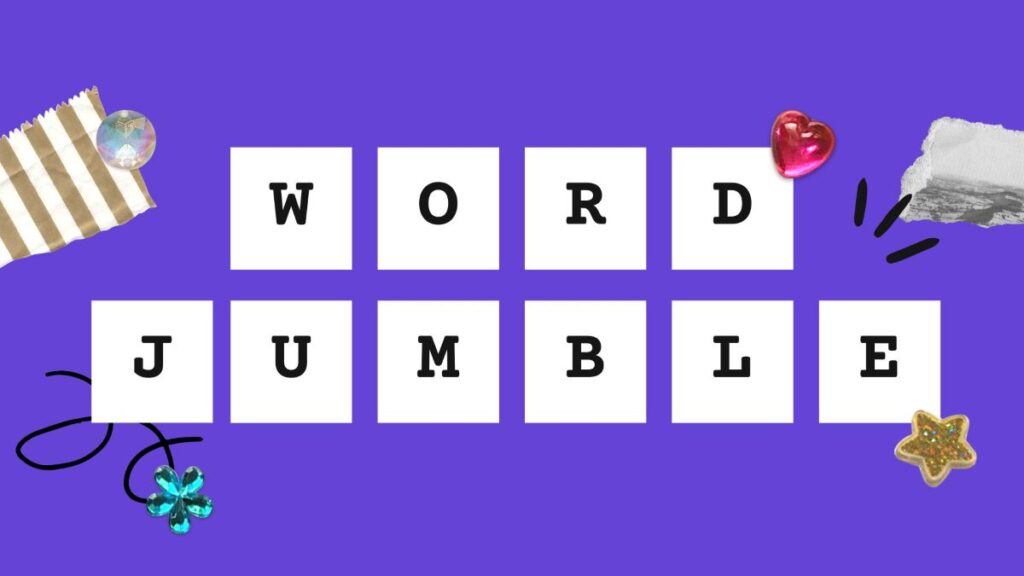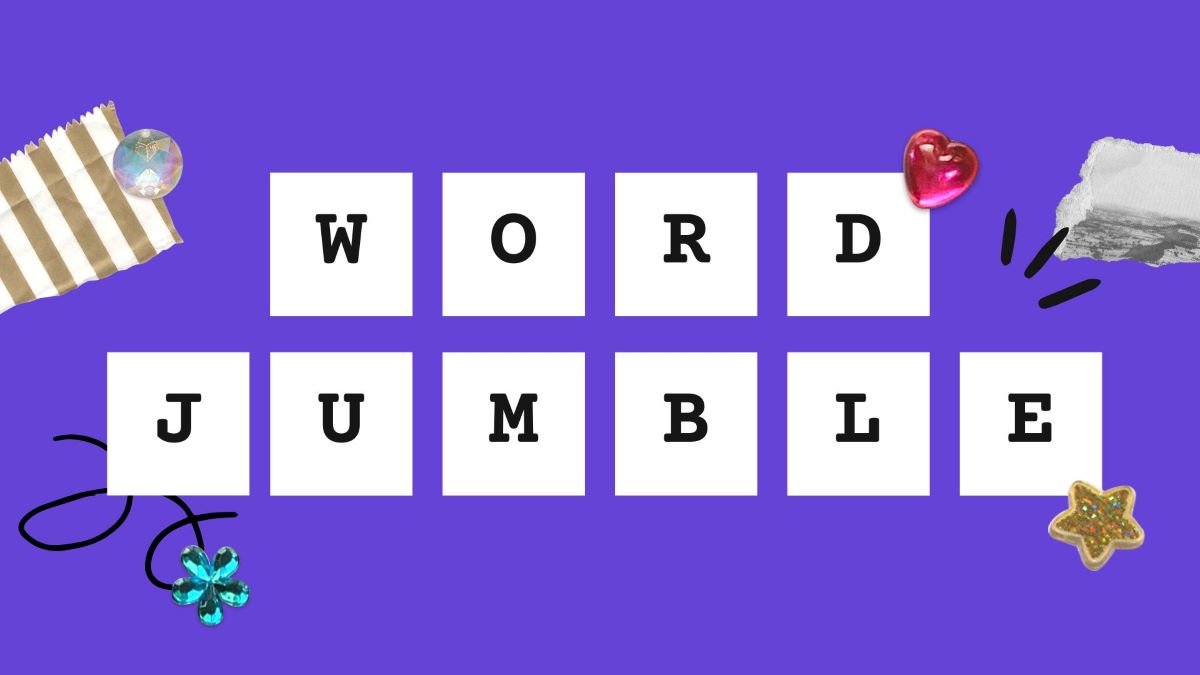
A Fun and Engaging Way to Sharpen Your Mind
Jumble word puzzles are a brain-teasing scramble of letters that you need to rearrange into meaningful, correctly spelled words. For example, the letters PENO would be sorted to form the word OPEN. Unscrambling jumble words is more than just a fun pastime—it can enhance cognitive functions such as memory and focus. It can also be an engaging way to test your word recognition, vocabulary, and problem-solving skills. It could be your daily mental workout session, keeping your brain cells active and agile.
I’m here to help you with your journey from being a puzzled beginner to a confident expert in unscrambling jumble words. You’ll find out about useful tips, strategies, and techniques. Whether you’re a beginner and just getting started or an expert seeking new challenges, this guide will help you improve your skills of unscrambling words.
Tips for Beginners
- Start Small: Begin with simple, four-letter words. This helps you get a feel for common letter patterns and familiarizes you with the process. Four-letter words are less daunting and give you quick wins, which is motivating for beginners. These exercises will also help you recognize common letter pairings and suffixes. English has its quirks, but it also has predictable combinations like CH, SH, TH, and so on. Spotting these can immediately give you a clue about the structure of the word you’re trying to unscramble. Some more examples include:
- STOP from OPTS
- DUST from SDTU
- EAST from TSEA
- Use a Pencil and Paper: Writing down the letters and visually manipulating them can make it easier to spot patterns and form words. The tactile experience of physically moving letters around can often trigger new insights that you might miss when just thinking about the letters in your head. This technique is especially helpful for beginners who are just starting to learn common word structures.

Building Your Skills
- Look for Common Prefixes and Suffixes: Identifying familiar beginnings and endings of words can provide valuable clues. For instance, common prefixes include UN, DIS, IN, RE and PRE, while common suffixes include ED, ER, LY, ING, OUS and MENT. Recognizing these can quickly narrow down the possibilities and make the process of unscrambling much faster.
- Find Larger Words: Look for puzzles with 5 or 6 letter words. Most of these will be more challenging than the puzzles with 4 letter words. Continuing to challenge yourself is the key to improving your skills and working toward being an expert jumble solver.
Mastering the Art
- Expand Your Vocabulary: The more words you know, the easier it is to unscramble jumbles. Read widely and regularly to encounter new words and reinforce your existing vocabulary. Books, newspapers, and even well-written online articles can introduce you to new words. Grab a dictionary and fall in love with learning new words – your brain will thank you. Additionally, learning the roots of words, prefixes, and suffixes in different languages can give you an edge, as many English words are derived from Latin, Greek, and other languages.
- Letter Banking: This might sound like financial jargon, but it’s a valuable strategy in unscrambling. By learning which letters frequently pair up in the English language, you create a ‘bank’ of go-to combinations when faced with a tough jumble.
- Sharpen Your Lateral Thinking Skills: Jumble puzzles aren’t always straightforward, and sometimes the answer comes from outside the box. Engaging in activities that promote lateral thinking and word associations can give you a creative edge.
- Challenge Yourself with Timed Exercises: Set a timer and see how many words you can unscramble in a set period. This not only makes the activity more exciting but also improves your speed and efficiency. Start with a generous time limit and gradually reduce it as you become more proficient. Competing against the clock adds an element of fun and urgency, making your practice sessions more dynamic.

Tips for All Levels
- Practice, Practice, Practice: You’ll also find that regular practice really pays off. Try to solve at least one jumble puzzle daily. Consistency is key, and over time, you’re going to see significant improvements in your unscrambling abilities. The more you practice, the better you’ll become at recognizing patterns and unscrambling words quickly. Keep a journal of new words you learn during this practice to continually expand your vocabulary. Don’t shy away from challenges; the more you confront them, the better you get.
- Use Word Lists and Anagram Solvers: There are many online tools and apps designed to help you unscramble words. Use them as a learning aid to discover new strategies and verify your solutions. Websites like WordFinder, Anagram Solver, and others can provide lists of words from a given set of letters, which can be used for practice. However, use these tools sparingly so as not to become overly reliant on them. The goal is to improve your own skills, not just get answers quickly.
- Stay Patient and Persistent: Unscrambling words can sometimes be challenging. Don’t get discouraged because persistence pays off. Like any skill, proficiency comes with time and practice. Every challenge you overcome helps build your confidence and ability to tackle more difficult puzzles.
- Play Other Word Games: Engage in other games like Scrabble, Boggle, and Words with Friends. These games are not only enjoyable but also help improve your word recognition skills. They introduce a competitive element that can make learning more engaging. Plus, playing with friends or family can be a great way to bond while sharpening your mind.
- Join a Community: Find others who enjoy unscrambling words. Join online forums or social media groups where you can share tips, solve puzzles together, and stay motivated. Communities like Reddits r/wordgames or dedicated Facebook groups can provide support, new puzzles, and a sense of camaraderie. Interacting with others can expose you to different solving strategies and keep you motivated.
Recommended Resources
- Jumbo Jumble: A Big Book for Big Fans: Collection from nearly three decades of popular Jumble puzzles, the wide array of subjects in this collection represents the very best of puzzles. With over 500 of the word-scramble challenges included, the book will entertain and test even the most devote puzzle buster.
- Word Scramble Large Print Puzzle Books for Adults: Each puzzle page has its own theme that helps you to find the words e.g. Animals, Cars, Movies etc. This Word Scramble Puzzle Book is a fun way for teens, adults, or seniors to sharpen their minds. Includes 82 Themed Puzzles and over 1200 words to unscramble to keep you entertained for hours.
- Jumble Mania: A Collection for Passionate Puzzlers: Puzzle enthusiasts will delight in this collection of fresh Jumble word puzzles, a fan favorite for its wit and approachable humor. For more than 40 years, millions of newspaper readers have delighted in solving Jumble, which appears in hundreds of national papers and in these puzzle books that offer hours of challenging wordplay and fun.
Final Thoughts
Unscrambling jumble words is a delightful and rewarding activity that can enhance your cognitive abilities. By starting with the basics, practicing regularly, and gradually incorporating advanced techniques, you’ll soon become a jumble word master. Whether you’re engaging in timed exercises, expanding your vocabulary, or participating in word games with friends, the journey to mastering jumble words is filled with fun and learning. So, grab a pencil, jot down those scrambled letters, and let the fun begin!
Happy Unscrambling!
Follow us on Facebook for more articles, tips, tricks and giveaways!
PuzzleSolverPro is reader-supported. When you buy via links on our site, we may earn an affiliate commission at no extra cost to you. It’s a simple way you can support our mission to bring you quality content.





Hi Robert. Thanks for the great post. It really made me think more about how I approach word puzzles! I love the idea of using common prefixes and suffixes to speed up the process. Do you have any special strategies of your own that you use to unscramble words faster? Personally, I always find that taking a short break and coming back to the puzzle with fresh eyes can sometimes help me see patterns I missed before. Also, do you have any favorite jumble words that you’ve encountered? As someone who always enjoyed maths I like how A DECIMAL POINT becomes I’M A DOT IN PLACE!
Thank you for the thoughtful comments, Andy. I’m glad you were able to glean some useful information from it. My goal is to provide quality content to all puzzlers. Regarding the strategies for unscrambling words faster, for me personally I found that moving on quickly to the next word when the answer isn’t jumping out to me has been my best strategy. It is a balancing act for me to give enough time to find the solution, but not getting bogged down on one jumble word. I don’t really have any favorite jumble words, but I often like to find puzzles that are ALL difficult words to really challenge myself. I may not solve 100% of them, but it gives me a real sense of accomplishment when I do better than expected. Take care!
Robert
Unscrambling words can be so much fun, but is can also be frustrating if you cannot get the correct word. So these tips are very helpful for a beginner to unscramble words. It is certainly easier to start with shorter words, and then gradually work with more letters.
I have also founds that writing down all the possibilities or combinations that come to mind, helps to solve the word puzzle. Recognising certain letter combinations are a great start to unscrambling a word. Thank you for sharing some great recommended resources.
Thank you so much for the kind words about this article. Anything that I can do to help someone get more enjoyment out of their puzzle time makes me feel really good. Take care!
Robert